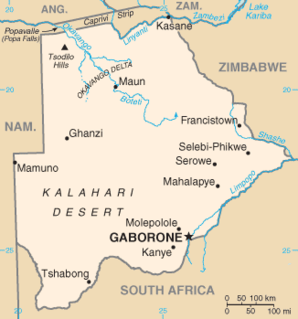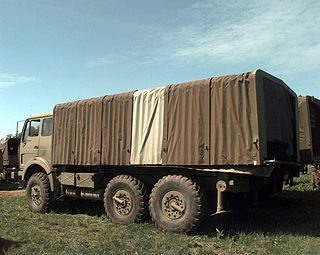| UN Security Council Resolution 232 | |
|---|---|
 Map of Southern Rhodesia | |
| Date | December 16 1966 |
| Meeting no. | 1340 |
| Subject | Question concerning the situation in Southern Rhodesia |
Voting summary | 11 voted for None voted against 4 abstained |
| Result | Adopted |
| Security Council composition | |
Permanent members | |
Non-permanent members | |
United Nations Security Council Resolution 232, adopted on December 16, 1966, noted with concern that the efforts to break off international economic activity with Southern Rhodesia had failed to bring the rebellion to an end, the Council decided that all member states would prevent the importation of an asbestos, iron ore, chrome, pig-iron, sugar, tobacco, copper, or animal-products that had originated in Southern Rhodesia. Additionally, the activities of any of their nationals designed to promote the export of these commodities or the importation of arms, ammunition of all types, military aircraft, military vehicles and equipments and materials for the manufacture and maintenance of arms and ammunition along with a total embargo of oil and oil products, though exception was made for contracts granted before this resolution.

The United Nations (UN) is an intergovernmental organization tasked with maintaining international peace and security, developing friendly relations among nations, achieving international co-operation, and being a centre for harmonizing the actions of nations. It was established after World War II, with the aim of preventing future wars, and succeeded the ineffective League of Nations. Its headquarters, which are subject to extraterritoriality, are in Manhattan, New York City, and it has other main offices in Geneva, Nairobi, Vienna and The Hague. The organization is financed by assessed and voluntary contributions from its member states. Its objectives include maintaining international peace and security, protecting human rights, delivering humanitarian aid, promoting sustainable development, and upholding international law. The UN is the largest, most familiar, most internationally represented and most powerful intergovernmental organization in the world. At its founding, the UN had 51 member states; there are now 193.

The Colony of Southern Rhodesia was a self-governing British Crown colony in southern Africa. It was the predecessor state of what is now Zimbabwe.
Contents
The Council also reaffirmed the inalienable rights of the people of Southern Rhodesia to freedom and independence and recognized the legitimacy of their struggle.
The resolution was adopted with 11 votes to none; the People's Republic of Bulgaria, France, Mali and the Soviet Union abstained.

The People's Republic of Bulgaria was the official name of Bulgaria, when it was a socialist republic.

France, officially the French Republic, is a country whose territory consists of metropolitan France in Western Europe and several overseas regions and territories. The metropolitan area of France extends from the Mediterranean Sea to the English Channel and the North Sea, and from the Rhine to the Atlantic Ocean. It is bordered by Belgium, Luxembourg and Germany to the northeast, Switzerland and Italy to the east, and Andorra and Spain to the south. The overseas territories include French Guiana in South America and several islands in the Atlantic, Pacific and Indian oceans. The country's 18 integral regions span a combined area of 643,801 square kilometres (248,573 sq mi) and a total population of 67.02 million. France is a unitary semi-presidential republic with its capital in Paris, the country's largest city and main cultural and commercial centre. Other major urban areas include Lyon, Marseille, Toulouse, Bordeaux, Lille and Nice.

Mali, officially the Republic of Mali, is a landlocked country in West Africa. Mali is the eighth-largest country in Africa, with an area of just over 1,240,000 square kilometres (480,000 sq mi). The population of Mali is 18 million. 67% of its population was estimated to be under the age of 25 in 2017. Its capital is Bamako. The sovereign state of Mali consists of eight regions and its borders on the north reach deep into the middle of the Sahara Desert, while the country's southern part, where the majority of inhabitants live, features the Niger and Senegal rivers. The country's economy centers on agriculture and mining. Some of Mali's prominent natural resources include gold, being the third largest producer of gold in the African continent, and salt.




